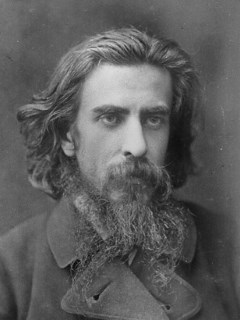
Publication details
Publisher: Springer
Place: Berlin
Year: 1999
Pages: 177-198
Series: Studies in East European Thought
Full citation:
, "In the name of the spirits", Studies in East European Thought 51 (3), 1999, pp. 177-198.


In the name of the spirits
a reading of Solov'ëv's justification of the good
pp. 177-198
in: Studies in East European Thought 51 (3), 1999.Abstract
In this contribution, the author analyzes Vladimir Solov'ëv's intention to study the idea of the Good as something "relatively independent' from religion and metaphysics. Some implications of Solov'ëv's definition of moral philosophy in The Justification of the Good are investigated, and illustrated with his "applied ethics' of war in chapter 18 of this book. It appears that Solov'ëv's moral philosophy and his account of war must be understood in connection with the central place of the cult of ancestors in his ethics. The idea of the Good and the idea of God spring from a religious origin and appear in our efforts to conjure up and exorcize the spirits of our forefathers. The author explains this ethics by referring to Solov'ëv's article China and Europe. There, Solov'ëv assumes that the Christian mind is treatened by the danger of a cultural order in which the cult of ancestors is most purely preserved. In the future war against China, however, Christian civilization must show itself superior to its enemy without betraying its loyalty to its own ancestors. The author concludes that in Solov'ëv's ethics, the moral subject is divided between the confirmation of its own autonomy and its being haunted by the spirits of its forefathers, a haunt which results in relentless wars against others
Cited authors
Publication details
Publisher: Springer
Place: Berlin
Year: 1999
Pages: 177-198
Series: Studies in East European Thought
Full citation:
, "In the name of the spirits", Studies in East European Thought 51 (3), 1999, pp. 177-198.

